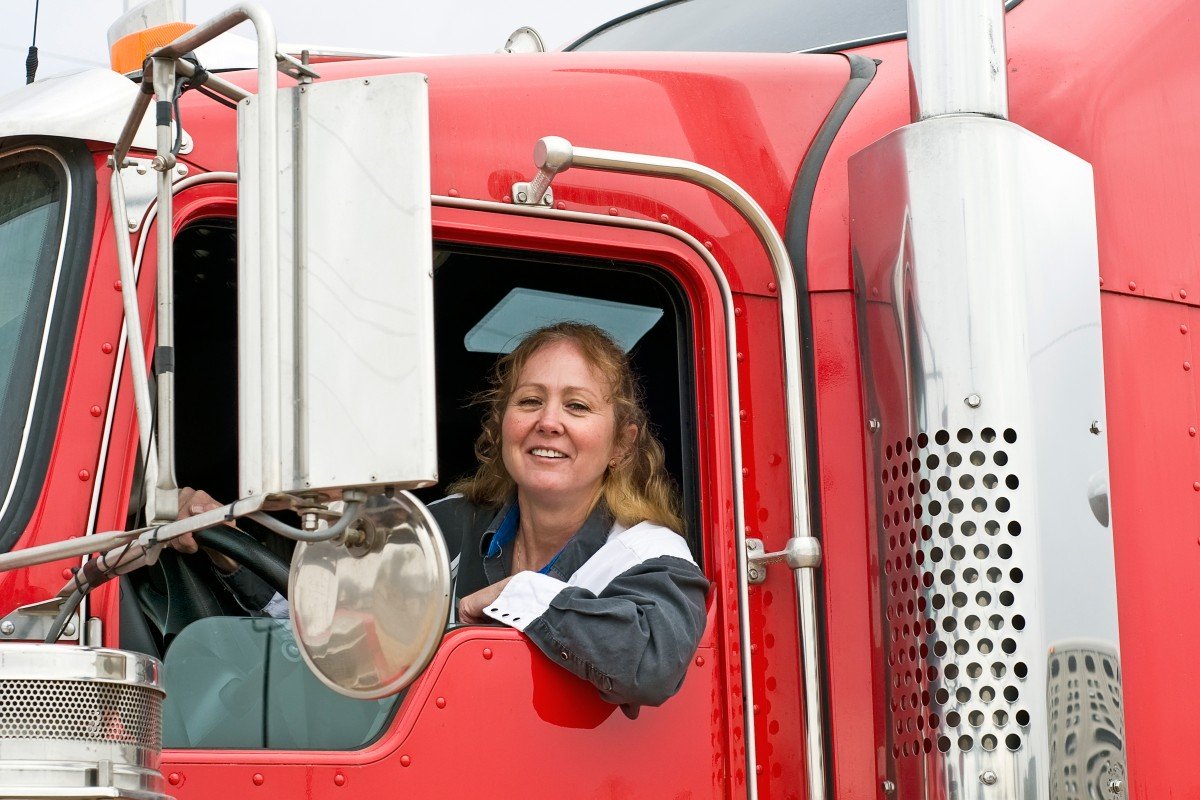The trucking industry keeps America moving, with more than 3.5 million professional drivers on the road. And with so many drivers, terms like owner-operator and independent contractor are used interchangeably, even though they mean very different things.
Understanding those differences matters. The path you choose shapes everything from your earning potential to how much freedom you have day to day.
Whether you’re exploring your first driving job or considering a shift into business ownership, knowing how each role works can help you make the choice that best supports your long-term career and income goals.
What Is an Owner/Operator?
An owner/operator is someone who both owns their equipment (or finances their equipment through a financial institution on their own accord) and operates their equipment as their career.
In other words, an owner/operator is “an independent contractor with a business attached to their name.”
Owner/operators have the ability to operate under their own authority, which means they can legally transport freight independently without a carrier company contracting them.
One of the upsides to being an owner/operator is that you get to keep all of the revenue generated for each haul. Because owner/operators own their trucks and function as businesses, they face more responsibilities than independent contractors.
Unlike many independent contractors, owner/operators are responsible for:
- all of the maintenance and repairs on their trucks
- the record-keeping for their taxes
- the insurance for themselves as well as any other drivers they may employ
- scheduling and planning out their pickups and deliveries
Leasing Options
Not all owner/operators are 100% independent, though. Some choose to lease onto a carrier company.
Leasing onto a carrier company means an owner/operator provides the company with a truck and driver in exchange for guaranteed steady workflow from the carrier company for the duration of the contract.
While this is a type of independent contracting, the driver still owns the truck and is therefore classified as an owner/operator.
However, owner-operators who lease onto a carrier operate under that carrier’s authority. Under Federal Motor Carrier Safety Administration (FMCSA) leasing regulations, that usually means the carrier controls the freight the driver hauls.
As a result, leased-on owner-operators generally cannot accept loads from outside brokers unless the carrier approves it.

Owner/Operator Pros
Owner-operators enjoy several leasing advantages that appeal to drivers who want maximum control and the potential for higher earnings.
- Full control over freight choices (with own authority): Owner-operators decide which loads to accept and which lanes to run. This allows them to build routes that match their preferences and earning goals.
- Higher earning potential per load: Since they keep full revenue, profitable lanes and strong business relationships can significantly boost income.
- Ability to build equity in equipment: Owning the commercial truck creates an asset that holds value and can later be sold or traded.
- Independence in business decisions: Everything from fuel strategy to maintenance vendors is under their control. As such, they have full authority over how their business operates.
Owner/Operator Cons
Despite the advantages, becoming an owner-operator comes with challenges and financial considerations that drivers should evaluate before committing.
- High startup costs: Buying a truck or financing equipment requires capital, credit, or both, making the initial investment substantial.
- Responsible for all maintenance and downtime: Breakdowns are expensive and can eliminate income while the truck is off the road.
- More administrative and compliance work: Managing operating authority, insurance filings, and bookkeeping demands time and attention beyond driving.
- Higher financial risk: Market fluctuations, unexpected repairs, and slow freight cycles can quickly impact profitability.
What Is an Independent Contractor?
An independent contractor is a driver who signs an agreement with a carrier company that will provide them with operating authority and guaranteed hauls for the duration of their contract.
In exchange for the operating authority and guaranteed hauls, independent contractors usually have to give a percentage of their earnings to the carrier as part of the contract agreement.
Furthermore, independent contractors do not necessarily own their trucks. They often lease the equipment from the carrier company that contracts them.
While leasing the equipment from the company is more cost-effective up-front, if the driver decides to leave the carrier, the truck stays with the company. So the driver is out of the money they paid to lease the vehicle during their time with the company.
Leasing Options
One major benefit to being an independent contractor is that contractors who are not in a lease-to-purchase agreement typically have less responsibility when it comes to the maintenance of the truck or any repairs that may come up during a haul, as the driver does not own the vehicle.
This is important because repairs on semi-trucks run anywhere between $13,000 and $16,000. And that’s without taking into account lost wages while the truck is off the road.
With this in mind, many novice drivers begin their careers as independent contractors until they are financially ready to branch off on their own.

Independent Contractor Pros
Independent contracting offers several advantages for drivers who want to enter the industry with fewer upfront costs and more support from a carrier.
- Lower barrier to entry: Drivers can start earning without buying a truck. This makes the role accessible to newcomers or those waiting to purchase equipment.
- Less responsibility for major repair costs: Carriers often cover large maintenance items, reducing unexpected expenses and helping contractors avoid costly downtime.
- Predictable freight from a carrier: Contracted hauls provide stability and consistent work, which can be reassuring for drivers who want a steady income.
- Good option for new drivers gaining experience: Independent contracting allows new drivers to learn the industry before assuming the full responsibilities of operating a trucking business.
Independent Contractor Cons
Independent contracting also has limitations that may affect income potential, flexibility, and long-term growth.
- Less autonomy: Loads, routes, stipulations, and schedules are usually assigned by the carrier, reducing control over daily operations.
- Lower earnings per load: A percentage or rate is retained by the carrier in exchange for authority, dispatching, and freight access.
- No long-term asset if leasing a truck: Lease payments do not build equity unless the driver is in a lease-purchase program designed for ownership.
- Schedule and freight controlled by the carrier: Limited flexibility can affect work-life balance, home time, and financial goals.
Key Differences Between Owner/Operators and Independent Contractors
Understanding the differences between owner/operators and independent contractors is essential for any driver evaluating their long-term career path.
While both roles fall under the broad category of self-employment in the trucking industry, the level of control, responsibility, earnings potential, and business risk varies significantly between the two.
At a high level, owner/operators function as small-business owners who operate their own equipment. Independent contractors operate under a carrier’s authority and often lease equipment rather than owning it outright.
Below is a breakdown of how the two paths compare:
| Category | Owner/Operator | Independent Contractor |
|---|---|---|
| Truck Ownership | Owns or finances their truck; holds full control and equity | May lease a truck from a carrier or third party; may or may not own equipment |
| Operating Authority | Can run under their own authority; can haul for any broker or shipper | Must operate under the carrier’s authority; restricted to that carrier’s freight |
| Control Over Loads | Chooses loads, lanes, and schedules independently | Follows the carrier’s dispatch system and freight availability |
| Business Responsibilities | Handles insurance, maintenance, repairs, bookkeeping, compliance, and customer relationships | Carrier typically handles compliance, authority filings, and insurance filings; the driver focuses on hauling |
| Upfront Costs | High initial investment (truck, insurance, permits) | Lower barrier to entry; fewer upfront expenses |
| Maintenance Costs | Fully responsible for all repairs and downtime | Carrier may cover some or most repairs, depending on lease terms |
| Earning Structure | Keeps 100% of freight revenue (after expenses) | Earns a percentage of revenue or a mileage rate set by the carrier |
| Risk Level | Higher financial risk due to equipment ownership and market volatility | Lower financial risk; more predictable workload and support |
| Flexibility | Maximum flexibility in choosing freight and partners | Less flexibility; work tied to the carrier’s freight network |
| Long-Term Growth | Builds equity in equipment; can scale into a fleet | Limited opportunity for asset growth unless purchasing truck independently |
What These Differences Mean for Drivers
Here’s how each factor plays out on the road and in your business.
Truck Ownership
Owner-operators build equity in their equipment and decide how and when to maintain it. This gives them control but also exposes them to large repair bills and downtime losses.
Independent contractors who lease a truck avoid the upfront cost of ownership, but they also miss out on long-term asset value and may face mileage or maintenance restrictions depending on their lease terms.
Operating Authority
Running under your own authority gives you the freedom to work with any broker or shipper, negotiate your own rates, and build direct relationships.
It also means handling FMSCA and DOT compliance, trucking insurance filings, and federal paperwork. Independent contractors skip these requirements by running under a carrier’s authority, but that limits load access to the carrier’s network.
Control Over Loads and Schedule
Owner-operators decide which loads to take, which lanes to run, and when to be on or off the road.
Independent contractors typically work through dispatch and accept loads the carrier assigns. This creates predictable work but reduces day-to-day flexibility and bargaining power.
Business and Administrative Responsibilities
Owner-operators run a full business, managing everything from bookkeeping and taxes to equipment compliance and fuel planning.
Independent contractors focus mainly on driving while the carrier handles most administrative tasks, making the role less demanding outside of driving hours.
Costs and Financial Risk
Owner-operators face higher exposure to financial swings, including repair costs, slow freight cycles, rising equipment prices, and fluctuating interest rates.
Independent contractors experience fewer financial shocks because many expenses are absorbed or managed by the carrier. The role is more stable for new drivers or those with tight budgets.
Earning Potential
Owner‐operators often gross $180,000-$350,000+ annually, though typical expenses can eat 60-80% of revenue, leaving net take-home often in the $60,000-$120,000 range.
Independent contractors, meanwhile, report average earnings of around $53,419-$68,892/year, with variation based on region, freight type, and contract terms.
Long-Term Career Growth
Long-term growth opportunities depend heavily on whether a driver owns their equipment.
Owner-operators have the ability to scale their business by purchasing additional trucks, hiring drivers, or moving into higher-paying freight niches such as specialized hauling.
Because they build equity in their equipment and operate under their own authority, they have more flexibility to negotiate directly with shippers and create dedicated lanes that support long-term stability.
Independent contractors, on the other hand, typically experience more limited advancement unless they move into ownership. Leasing a truck through a carrier doesn’t create equity, so long-term financial growth often requires transitioning into an owner-operator role.
However, independent contractors can still grow professionally by taking on specialized freight within a carrier’s network or using the role as a stepping stone to eventually purchase their own truck.

Which Option Is Right for You?
Choosing between becoming an owner-operator or an independent contractor depends on your goals, financial situation, and readiness to take on the responsibilities of running a business.
Here’s what to consider when choosing:
- Your experience level: New drivers often start as independent contractors because it’s an accessible way to gain experience without taking on the full financial and administrative burden of running a trucking business.
- Your financial stability: Owner-operators need enough savings or credit to cover a down payment, insurance, maintenance costs, and unexpected repairs. Independent contractors usually have lower upfront costs, making the role more attainable early in a driving career.
- Your willingness to run a business: Owner-operators handle bookkeeping, taxes, maintenance planning, safety compliance, permits, and customer relationships. Independent contractors focus more on driving, while the carrier manages authority filings and much of the administrative work.
- Your comfort with risk: Running under your own authority offers more autonomy, but it also comes with higher financial exposure. Independent contractors typically face fewer financial surprises, especially if they are leasing a truck through the carrier.
- Your long-term career goals: Some drivers want independence, earning potential, and the ability to build equity in their equipment. Others prioritize predictable freight and fewer business obligations.
Many drivers begin as independent contractors to build savings and learn the industry. Once they are ready for greater control (and the risks and rewards that come with it), they transition to owner-operator status.
Conclusion
Both owner-operators and independent contractors are vital to the trucking industry, and each path offers meaningful opportunities depending on your goals.
Owner-operators enjoy more freedom and earning potential but take on higher financial and administrative responsibilities. Independent contractors benefit from lower barriers to entry and more predictable support from a carrier.
Choosing the right path comes down to understanding your financial readiness and long-term plans.
Whether you’re upgrading equipment or preparing to become an owner-operator, Mission Financial Services can help you get the financing you need. Learn more about our direct lending or start your credit application right away.
Find out what owner-operators should do to achieve success!




